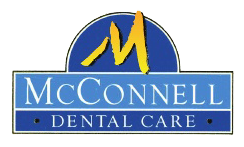Dental crowns are a common solution for restoring damaged teeth, providing strength and an aesthetic boost. They can be a lifesaver when it comes to preserving your smile and maintaining oral health. However, some people may experience discomfort or pain after getting a crown placed. If you've found yourself wondering why dental crowns hurt, you're not alone. Understanding the potential causes of this pain is crucial in finding effective solutions and ensuring your dental work remains as comfortable as possible. Let’s dive into the reasons behind that pesky crown discomfort you might be experiencing!
Common Causes of Dental Crown Pain
Dental crown pain can stem from several underlying issues.
- One common cause is improper fit. If the crown doesn’t sit correctly on your tooth, it can create pressure and discomfort.
- Sensitivity to temperature changes may also contribute to pain. Hot or cold foods might trigger sharp sensations due to exposed nerves beneath the crown.
- Another factor could be decay around the edges of the crown. Bacteria can infiltrate tiny gaps, leading to inflammation and discomfort in the surrounding gum tissue.
- In some cases, an allergic reaction to materials used in crowns can occur. This rare situation may result in irritation or swelling around your dental restoration.
- Grinding teeth at night puts extra stress on crowns, potentially causing pain over time. Addressing these causes early is key to maintaining comfort and oral health.
Solutions for Dental Crown Pain
When dealing with dental crown pain, there are several effective solutions to consider.
- First, a visit to your dentist can often provide relief. They may need to make adjustments to ensure the crown fits properly and isn’t causing discomfort.
- Over-the-counter pain relief medications can also be beneficial in managing mild pain. Ibuprofen or acetaminophen can help alleviate discomfort while you wait for your appointment.
- For those seeking natural remedies, rinsing with warm salt water is soothing and helps reduce inflammation. Applying a cold compress outside the cheek may also ease some of the swelling and soreness.
Remember that everyone's situation is unique, so what works for one person might not work for another. It's essential to explore these options based on your specific needs and comfort level. Contact us to learn more.
When to Seek Professional Help
If your dental crown pain persists for more than a few days, it’s time to consult a professional. Lingering discomfort can signal underlying issues that need attention.
Another red flag is if you experience swelling or fever alongside the pain. These symptoms may indicate an infection requiring prompt treatment.
Additionally, watch for extreme sensitivity to hot or cold foods and beverages. This heightened sensitivity could mean your crown isn’t fitting correctly, or there might be decay underneath.
If you notice any visible damage to the crown itself, such as cracks or chips, don’t hesitate to reach out. Ignoring these signs can lead to further complications down the road.
Trust your instincts; if something feels off with your dental crown, seeking help sooner rather than later is wise. Your oral health deserves priority and peace of mind.
Tips for Preventing Dental Crown Pain
Maintaining good oral hygiene is crucial for preventing dental crown pain.
- Brush your teeth at least twice a day and floss daily to keep plaque buildup at bay.
- Regular dental checkups also play a key role. Your dentist can monitor the condition of your crowns and address any issues before they escalate.
- Be mindful of what you eat. Avoid hard, sticky, or overly chewy foods that could put unnecessary pressure on your crowns.
- Use a night guard if you grind your teeth while sleeping. This simple device can prevent damage to both natural teeth and dental crowns.
- Stay hydrated! Drinking plenty of water helps wash away food particles and bacteria, promoting overall oral health and reducing discomfort in crowned areas.
Conclusion
Experiencing pain from dental crowns can be concerning, but it's important to remember that there are various reasons this might occur. Understanding the common causes—such as improper fitting, sensitivity, and issues with underlying teeth—can help you identify the problem more easily.
Whether through adjustments at your dentist’s office or simple home remedies, many solutions exist to alleviate discomfort. When over-the-counter medications don't provide relief or if the pain persists, reaching out for professional help is key.
Taking preventive measures is also crucial in maintaining oral health and avoiding future crown-related issues. By following good oral hygiene practices and keeping up with regular check-ups in Stansbury Park, UT, you can significantly reduce the likelihood of experiencing dental crown pain again.
Your smile deserves care and attention!
To schedule an appointment with us today at McConnell Dental Care, located at 263 Country Club Dr #102, Stansbury Park, UT 84074. For bookings and consultations, call (435) 249-0482. Please visit our official website today to learn more about our various services.
